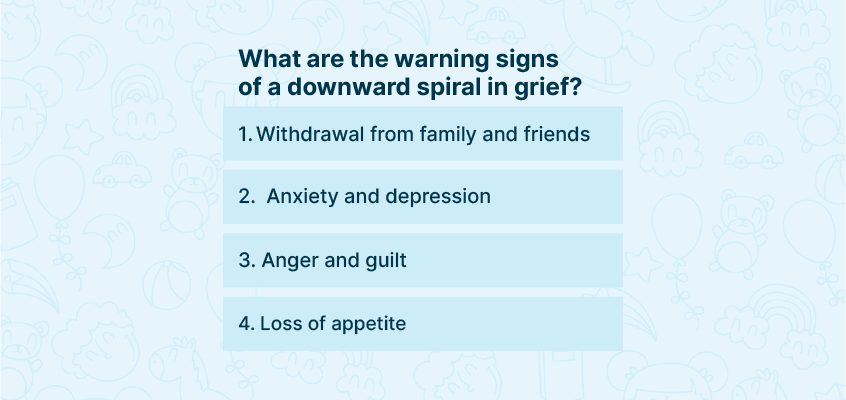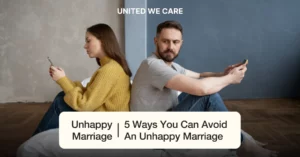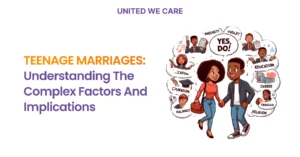Introduction
The death of a loved one is one of life’s most difficult experiences. Sometimes, there are warning signs before death occurs; at other times, an illness progresses so rapidly that the dying person is gone in just a matter of days. The bitter truth is we must move on. But how? Let’s learn about some coping methods.
How do you prepare yourself when you lost a loved one?
How do you say goodbye? How can you accept that you will never see your loved one again? These questions are complex so is death. It is more brutal to deal with the demise of a loved one. Being confronted with death often leaves us completely lost for words; it feels unreal, sudden, and final. We numb ourselves with alcohol or distractions, and quite frequently, these attempts might work for a while, but sooner or later, the pain catches up, and it’s even worse than before!
Spirituality helps. We can find a lot of solace in the belief that the soul never dies, so in a way, our loved ones will always be there. They are just changing costumes. It is destiny to meet again someday. This thought helps a lot in preparing for the death of a loved one.
Know more about How to Cheer Up When Feeling Low?

How do you get back on your feet when you lost a loved one?
Following the death of a loved one, you might constantly feel as though something is missing, have trouble eating or sleeping or feel numb inside. You might think that your world is crumbling around you and that nothing will ever be normal again. You might even feel as though life isn’t worth living. So, how do you get back on your feet?
- During this stage, it’s essential to be gentle with yourself.
- Try talking about your loved one with others who knew – like family members or close friends.
- You can also try writing a diary.
- Meditation will help calm your mind and get strength from the Supreme Power.
- In time, you’ll reach a stage of acceptance and find ways to remember the person who died without pain. Spiritual leaders believe that the departed soul cannot rest in peace if you grieve, and you do not want that, right?
Why is it important to grieve and move on after losing a loved one?
Death is never easy – even when the person was ill for months or years beforehand, even when you were expecting it. In the cases of accidents or suicides, accepting death becomes even more difficult. It’s natural at times of loss to feel angry or bitter – but holding on to those feelings won’t do any good. Grieving is essential, but don’t let it take over your life because chances are you’ll become depressed, and anyone who has been through depression knows how horrible and brutal it is to deal with, so be strong and move on.
Eventually, you may find that the memory of your loved ones no longer brings up the pain, but you might still feel them close by from time to time. It is normal, and it doesn’t mean you’ve forgotten them. Instead, it shows that they are still with you in your heart and spirit, even if they aren’t physically present any longer.
What are the warning signs of a downward spiral in grief?
A downward spiral in grief occurs when a person’s suffering becomes negative, affecting physical, mental, and emotional well-being. Some warning signs of a downward spiral in distress are:
- Withdrawal from family and friends
- Anxiety and depression
- Anger and guilt
- Loss of appetite
- Problems sleeping, and
- Sudden mood changes
If you or anyone you know is showing any warning signs, it’s essential not to ignore them because ignoring the problem won’t make it go away; you need help. Be proactive about seeking out other friends and family who can help you cope with your loss. If this is not helping, and you find yourself constantly thinking about death and having the above symptoms, do not hesitate to seek help from a mental health professional.
Read more about Self-Care Techniques to Help You Deal with Depression
The importance of getting professional help when you lost a loved one
If you find yourself withdrawing from friends and family, remember that it’s normal to want to be alone during this time. However, if your isolation lasts more than a month or two after the death, seek counselling. The death of a loved one can become a severe mental health condition if you don’t manage your grief and suffering well.
Studies have shown that losing a loved one can lead to a wide range of changes in your behaviour and personality – from a dramatic shift in values to alcohol or drug abuse. Grief can also trigger various mental health problems – from depression and anxiety to post-traumatic stress disorder (PTSD).
If you find yourself unable to cope after losing someone close to you, it will be very beneficial for you to contact a therapist who can help you work through things and process your feelings at your own pace.
Explore Our Self-paced Courses
To wrap things up
There is nothing more painful than the death of a loved one. It is essential to grieve, cry, rage, scream if you have to. Do whatever is necessary to vent the pain that you’re feeling inside. Don’t bottle it up. It’ll only make things worse in the end. After this has happened for a bit, acceptance is crucial.
Understand that there is no greater truth than death. Know that you aren’t alone, and all of us have to go through this pain at some point. Yes, you should remember your loved ones, who have passed away, but you don’t have to feel guilty about moving on with your life. Acceptance and resolution don’t mean that you’ve “moved on” from your loved one’s death – It just means that you’re able to live a fulfilling life without them, which is something they would want. Keep their good memories alive and feel happy about the beautiful moments spent together. Believe that your loved one is a soul who never dies and will always be there.
Do not hesitate to seek help from a professional mental therapist if you feel overwhelmed and unable to cope with the grief on your own.
Talk To Our Experts









